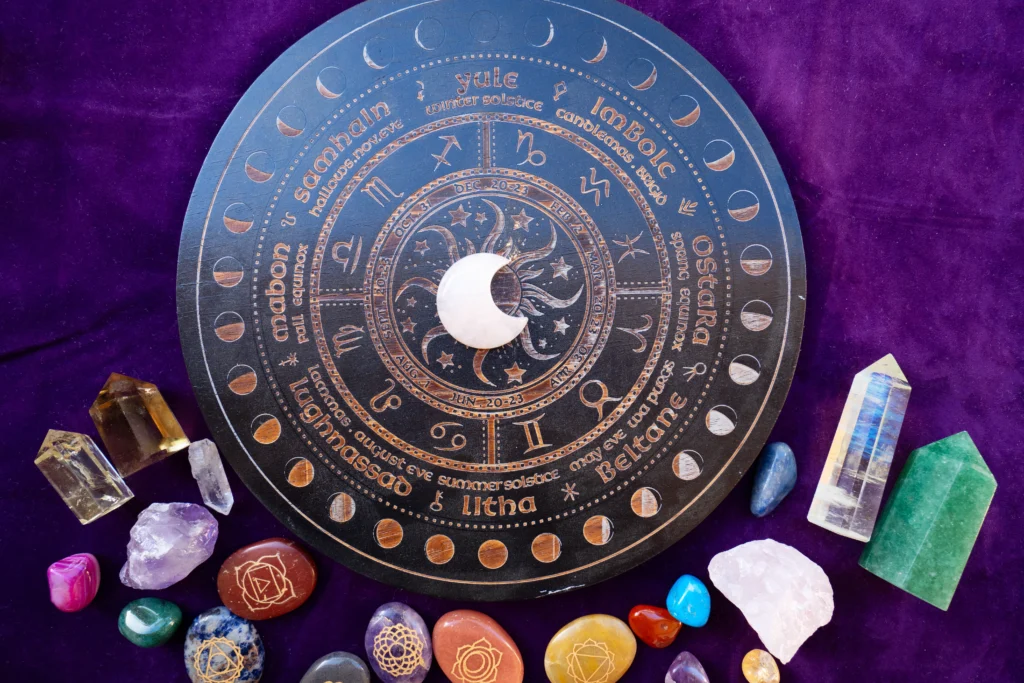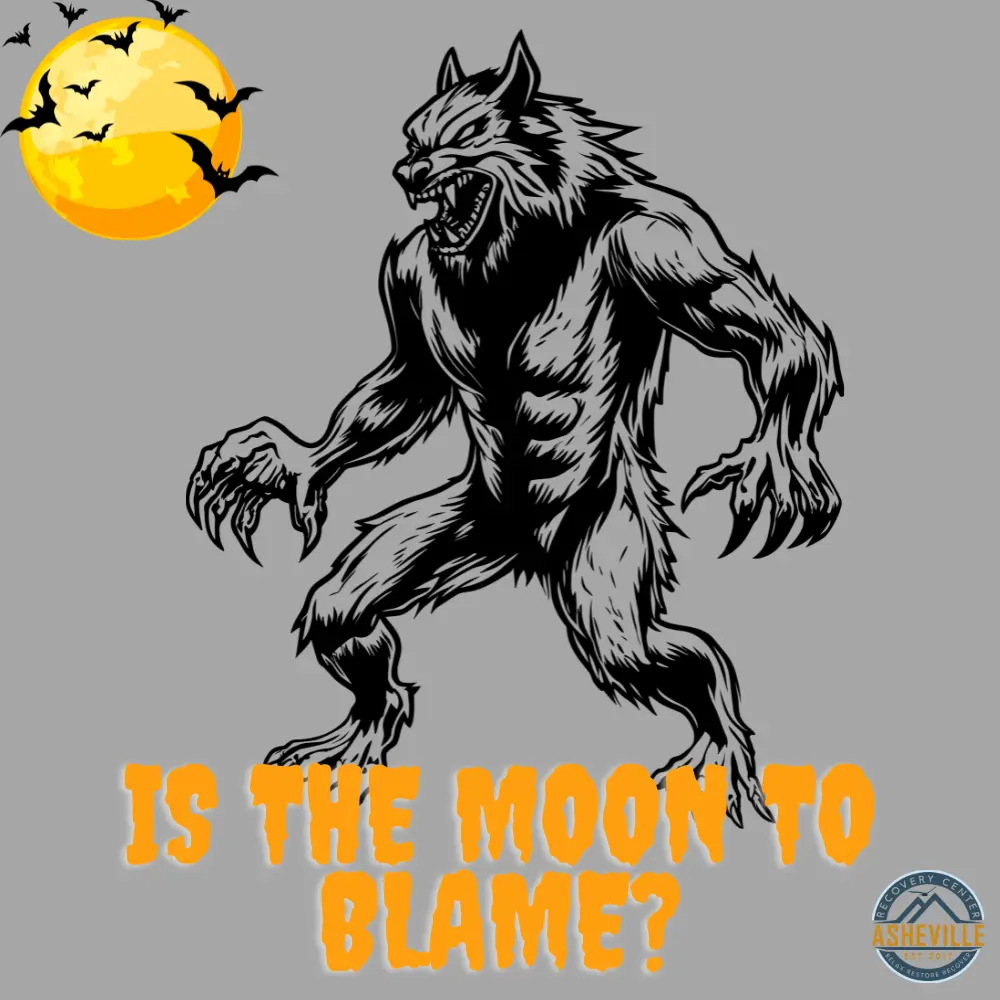Does the Full Moon Affect Our Behavior or is that a major gimmick? I’ll admit it—I used to roll my eyes at the idea that the moon or astrology could influence human behavior. The thought that a glowing rock orbiting Earth could sway our moods or actions seemed, well, a bit far-fetched. But recently, as the Harvest Moon approaches on September 29th, I’ve found myself diving deeper into the topic. And you know what? The more I look into it, the more I wonder if there’s something to these lunar legends after all.

A Journey of Discovery
My skepticism wasn’t unfounded. Like many, I relied on science and tangible evidence to explain the world around me. The notion that the phases of the moon could impact our daily lives felt more like folklore than fact. But curiosity got the better of me, and I began to explore the history, myths, and research surrounding the moon’s influence on human behavior.
The Historical Connection Between Moon Phases and Human Behavior
Ancient Beliefs and Terminology
The idea that the moon affects us isn’t new. Ancient civilizations observed the lunar cycle closely, attributing various human behaviors to its phases.
- Lunacy and Lunatic: Ever wondered where these words come from? They stem from “luna,” the Latin word for moon. Historically, unusual behaviors were often blamed on the moon’s phases.
- Moon Effect: Many cultures believed in the “moon effect,” the idea that the full moon could induce madness or erratic behavior.
Folklore and Legends
Stories of werewolves transforming under a full moon or people acting strangely during certain lunar phases have been part of folklore for centuries. These tales, while mythical, highlight humanity’s long-standing fascination with the moon’s potential influence on us.

Strange Things During a Full Moon: Coincidence or Cosmic Influence?
As I delved deeper, I came across numerous accounts of odd occurrences coinciding with the full moon.
Increased Activity in Emergency Rooms
Healthcare providers often report busier shifts during full moons.
- Emergency Departments: Some nurses and doctors claim there’s an uptick in accidents and bizarre behavior, leading to more emergency room visits.
- Psychiatric Admissions: Anecdotal evidence suggests a rise in psychiatric admissions during full moons, with patients exhibiting heightened symptoms.
Changes in Human Behavior
- Mood Swings and Emotional Highs: People have reported feeling more emotional or experiencing mood swings during full moons.
- Sleep Patterns: Studies have shown that some individuals have disrupted sleep or less deep sleep during certain lunar phases.
Animal Behavior
It’s not just humans. Animals, too, seem to react to the moon.
- Wildlife Activity: Increased movements in animals like wolves and coyotes during full moons have been observed.
- Pet Behavior: Pet owners sometimes notice their pets acting unusually restless or agitated.

Scientific Evidence: What Does Research Say?
This is where things get intriguing. While folklore and anecdotes are fascinating, I wanted to see what science had to say.
Gravitational Pull and the Human Body
The moon’s gravitational pull affects the ocean tides, so could it impact us?
- Human Body Composition: We’re made up of about 60% water. Some theorize that the moon could influence bodily fluids, potentially affecting our behavior.
- Scientific Consensus: Most scientists argue that the gravitational forces exerted by the moon on the human body are minimal compared to its effect on vast oceans.
Circadian Rhythms and Light Exposure
Our circadian rhythms, which regulate sleep and wake cycles, can be influenced by light.
- Full Moon Brightness: Before artificial light, the full moon was a significant light source at night, possibly affecting sleep patterns.
- Sleep Studies: Some research indicates that people may experience shorter deep sleep phases during a full moon, leading to sleep deprivation and mood changes.
Psychiatric Studies
- Mental Illness and Lunar Phases: Studies have explored correlations between the lunar cycle and mental health conditions like bipolar disorder and schizophrenia.
- Mixed Results: While some studies find slight increases in certain behaviors during full moons, others find no significant correlation. The scientific community remains divided.
The Power of Belief and Confirmation Bias
One concept that kept popping up was confirmation bias.
- Expectations Influencing Perceptions: If people expect the full moon to affect behavior, they might be more likely to notice and remember events that confirm this belief.
- Psychological Impact: Our beliefs can shape our experiences. Simply believing in the moon’s influence might cause individuals to unconsciously act differently.
Personal Reflections: Bridging Skepticism and Openness
After sifting through history, anecdotes, and scientific studies, I’ve reached a more nuanced understanding.
- Acknowledging the Unknown: While concrete evidence is mixed, there’s enough curiosity and data to keep the question open.
- Embracing Possibilities: Instead of dismissing the idea outright, I’m open to the possibility that the moon might have subtle effects on us.
The Upcoming Harvest Moon and What It Means for Us
With the Harvest Moon on the horizon, it’s the perfect time to reflect.
Cultural Significance
- Historical Importance: Traditionally, the Harvest Moon signaled a time for farmers to gather crops, aided by the moon’s extended light.
- Community Gatherings: Many cultures hold festivals or celebrations during this time, emphasizing gratitude and connection.
Personal Well-being
- Self-Care: Use this lunar event as a reminder to check in with yourself. Are you feeling more stressed or anxious?
- Mindfulness Practices: Engage in activities like meditation or journaling to ground yourself during this period.
When the Moon’s Influence Feels Overwhelming
Whether the moon affects us or not, feelings of anxiety, mood swings, or sleep disturbances are real and valid.
Recognizing Signs You Might Need Support
- Persistent Mood Changes: Ongoing feelings of sadness, irritability, or emotional highs and lows.
- Disrupted Sleep Patterns: Chronic insomnia or excessive sleeping.
- Substance Use: Relying on alcohol or drugs to cope with feelings.
Asheville Recovery Center Is Here to Help
If you find yourself struggling, the Asheville Recovery Center offers support.
What We Offer
- Personalized Treatment Plans: Tailored to your unique needs.
- Experienced Professionals: Compassionate staff dedicated to your well-being.
- Holistic Approaches: Incorporating mindfulness, therapy, and community support.
How to Reach Us
- Phone: (828) 518-6996
- Address: 9 Old Burnsville Hill Road, Asheville, NC
- Website: www.ashevillerecoverycenter.com
Embracing the Mystery
While I started as a skeptic, exploring the potential connections between the moon and our behavior has been enlightening.
- Open-Minded Exploration: It’s okay to question and explore ideas that challenge our beliefs.
- Finding Balance: Embrace the wonder of the unknown while staying grounded in reality.
Final Thoughts
Whether you’re a firm believer in the moon’s influence or hold onto skepticism, the upcoming Harvest Moon offers an opportunity.
- Pause and Reflect: Take a moment to appreciate the beauty of the moon and consider how it makes you feel.
- Connect with Others: Share your thoughts and experiences with friends or join community events.
- Stay Curious: Keep exploring and asking questions—that’s how we grow.
And remember, if ever the tides of emotion feel too strong, you’re not alone. Support is available, and reaching out is a sign of strength.






